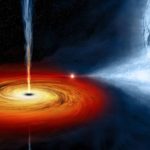There has been a bunch of research done Juan Piantino who works at the OHSU School of Medicine about how a space flight can change someone’s brain. The research of this study dealt with looking at images of 15 different astronauts brains before and after they went on a tour of the International Space Station. […]
science
"Science is the the intellectual and practical activity encompassing the systematic study of the structure and behavior of the physical and natural world through observation and experiment." - Definition
Interest in the field of science that may have something to do with Taming Gravity!
Antimatter and Fusion: The Propulsion Duo Powering Tomorrow’s Spacecraft
Introduction to Antimatter and Fusion Propulsion The Need for Advanced Space Propulsion As humanity sets its sights on exploring the far reaches of our solar system and beyond, the limitations of current propulsion technologies become increasingly apparent. Traditional chemical rockets, while reliable, are inefficient for long-duration missions due to their low specific impulse and […]
Exploring Planets Virtually: How VR is Expanding Our Knowledge of Other Worlds
Introduction to Virtual Reality in Space Exploration The Evolution of VR Technology Virtual Reality (VR) has come a long way since its inception. The concept of VR dates back to the mid-20th century, with early attempts like the Sensorama, a machine that provided a multi-sensory experience. However, it wasn’t until the 1980s that the […]
Fusion experiment smashes record for generating energy, takes us a step closer to a new source of power
The Joint European Torus, or JET, is a reactor that beat the world record for the amount of energy released by nuclear fusion on Earth, with the plasma in the reactor clocking in at 59 megajoules’ worth of energy. Scientists are studying nuclear fusion, which is the nuclear reaction that takes place in stars, and […]
The Dark Side of the Cosmos: What is Dark Matter?
Introduction to Dark Matter What is Dark Matter? Dark matter is a mysterious and invisible form of matter that does not emit, absorb, or reflect light, making it undetectable by conventional telescopic means. Despite its elusive nature, dark matter is believed to constitute approximately 27% of the universe’s total mass and energy content. Unlike […]
UFOs Explained – The Dilemma
With approximately 200 to 300 billion stars in our galaxy, the odds of intelligent life out there are very high. But the galaxy is 100,000 light years in diameter and it is impossible to travel faster than the speed of light. It’s possible to imagine really advanced civilizations could possess the technology to traverse these […]
From Dust to Galaxies: The Life Cycle of Cosmic Structures
Introduction to Cosmic Structures The Vastness of the Universe The universe is an almost incomprehensibly vast expanse, stretching over 93 billion light-years in diameter. It contains billions of galaxies, each with millions or even billions of stars, planets, and other celestial objects. This immense scale challenges our understanding and imagination, making the study of […]
Predicting the Cosmos: AI Algorithms for Advanced Astronomical Research
Introduction to AI in Astronomy The Intersection of AI and Astronomy Artificial Intelligence (AI) has become an indispensable tool in the field of astronomy, revolutionizing the way researchers analyze and interpret vast amounts of data. The integration of AI into astronomical research allows scientists to sift through enormous datasets generated by sky surveys and […]
The Expanding Universe: Insights into Cosmic Acceleration
Introduction to Cosmic Acceleration Understanding the Expanding Universe The concept of an expanding universe is fundamental to modern cosmology. It posits that the universe has been growing ever since the Big Bang, approximately 13.8 billion years ago. This expansion is not like an explosion from a central point but rather a stretching of space […]
Breakthrough in the nonlinear generation of primordial gravitational waves
It has always been hard to measure gravitational waves especially in the beginning of the universe. We have just recently discovered a way to do it. This new breakthrough from China and Japan have discovered old gravitational waves in high energy physics when the universe was born. It was found by a phenomenon and then […]










